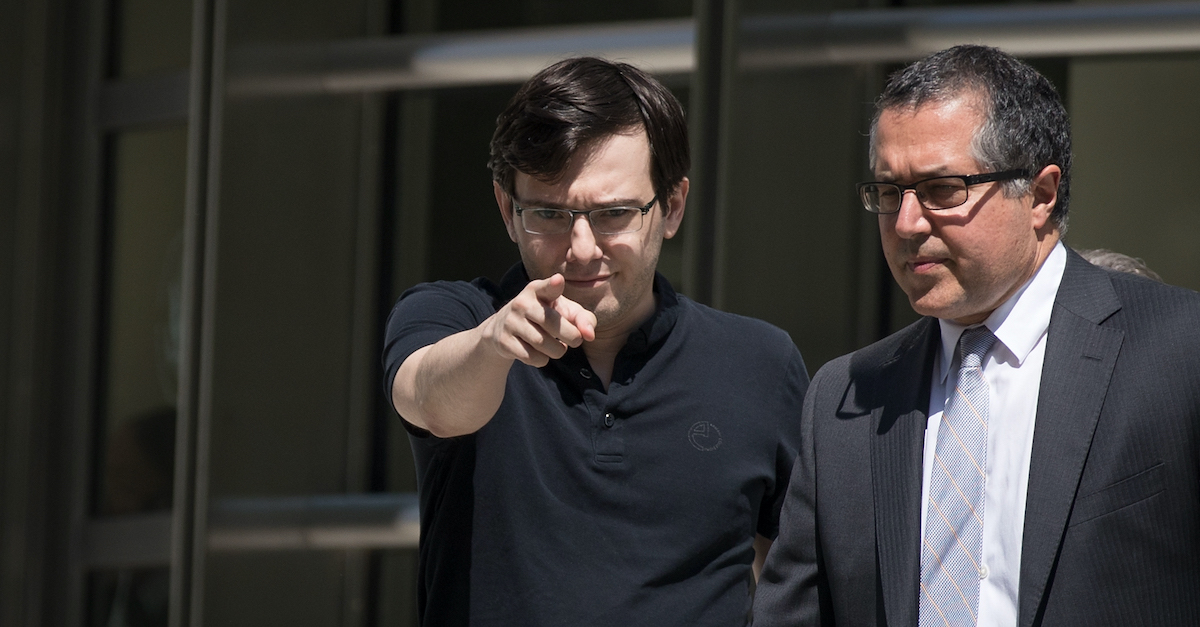
Fending off a possible lifetime ban from the pharmaceutical industry, Martin Shkreli must prepare for a two-day deposition inside a federal prison in Allenwood, Pennsylvania, where he is serving a seven-year sentence for securities fraud.
The Federal Trade Commission and seven state attorneys general will take turns grilling Shkreli about whether he conspired behind bars to jack up the price of the live-saving drug Daraprim, whose 40-fold price hike earned him the nickname “Pharma Bro” roughly half a decade ago.
U.S. District Judge Denise Cote slated his questioning for Jan. 27 and 28, the dates requested by regulators.
Shkreli had wanted the deposition to occur on Feb. 23 and 24, which would have given regulators little time to pursue investigative leads before the close of discovery on Feb. 26.
The commission’s assistant director Markus Meier told the judge the fast-track would be necessary to keep Shkreli from running out the clock.
“Your Honor allotted each side 140 hours of deposition time, and Plaintiffs have a substantial interest in deposing key witnesses, such as Mr. Shkreli, earlier in the process, so as not to risk running short on time,” he wrote on Dec. 18.
During his deposition next month, Shkreli will be a little more than halfway through a sentence expected to expire in September 14, 2023. He has been serving that time after a federal jury in Brooklyn convicted him of what prosecutors called a “Ponzi-like” scheme to defraud investors in his company, Retrophin.
Years before that prosecution, Shkreli earned public notoriety for raising the price of Daraprim from $17.50 to $750 per pill. The 4,000-percent hike made for sky-high treatment for toxoplasmosis, a disease common with pregnant women and people with AIDS. The single-day increase sparked condemnation on Capitol Hill, where Congress dragged Shkreli in for testimony. Shkreli ducked and smirked his way through proceedings, and he called his congressional questioners “imbeciles.”
Shkreli’s unapologetic defense of the behavior that made him a poster child for the pharmaceutical industry’s greed won him an online cult following, romantic attention, and the nickname “Pharma Bro.” He appeared to relish in negative publicity, spending $15,000 on a bottle of wine and trolling Wu Tang Clan fans by buying their one-of-a-kind album “Once Upon A Time in Shaolin”—and saying he never listened to it.
Though Shkreli played the penitent at his sentencing, state and federal regulators contend that he went back to his old tricks behind bars. His old company, Turing Pharmaceuticals, got a rebrand as Vyera, which regulators sued along with its Swiss parent Phoenixus and his associate Kevin Mulleady.
Judge Cote advanced the case to discovery in August, in a ruling raising the prospect that neither Shkreli nor Mulleady will work in the pharmaceutical industry again if found liable for antitrust violations.
Citing reporting in the Wall Street Journal, regulators claim that Shkreli exercised “shadow power” over Vyera and Phoenixus from behind bars.
[Image via Drew Angerer/Getty Images]